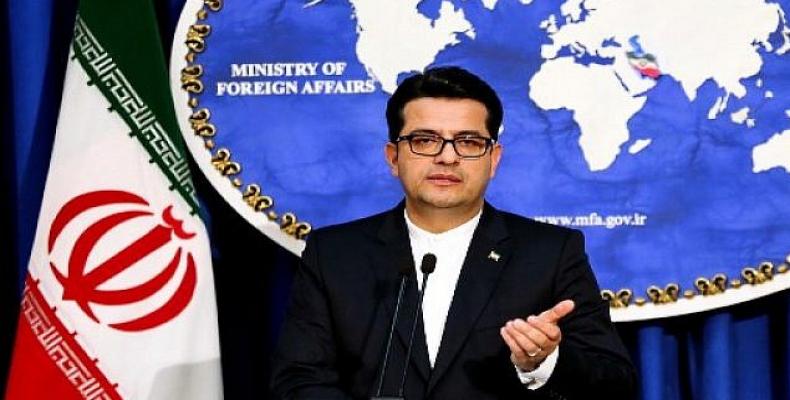Tehran, September 9 (RHC)-- Iran's Foreign Ministry Spokesman, Abbas Mousavi, said Sunday that the Iranian tanker Adrian Darya 1 has finally docked at a Mediterranean port and discharged its oil cargo, despite all the attempts of interference from the United States.
"The Adrian Darya 1 oil tanker, despite acts of sabotage, finally docked on the Mediterranean coast and unloaded its cargo and its owner will make a decision for its future," the spokesman told the Islamic Republic news agency (IRNA).
Mousavi made it clear that the country had already informed would sell its oil “one way or another” and that acts of sabotage would not affect its plans. The official also said that the actions, undertaken by the U.S. to seize the tanker, were a violation of international guidelines, including the law of the sea and guidelines of the International Maritime Organization.
The Iranian oil tanker has been at the center of the confrontation between Iran and Washington since July 4, when British Royal Marines captured the ship then known as Grace 1 in Gibraltar, over allegations it would sell oil to Syria in contravention of the sanctions put on the Arab nation. Tehran had rejected Britain’s accusations and condemned the seizure as an act of “piracy.”
The oil tanker’s retention ended on August 15th, but a U.S. federal court issued a warrant for further detention, claiming that the vessel was linked to Iran’s Islamic Revolutionary Guard Corps (IRGC), which it has designated a terrorist organization.
Gibraltar responded that it could not follow Washington’s demand as EU’s law “is fundamentally different from that of the U.S.,” when it comes to the sanctions against the Islamic Republic.
After the vessel left anchorage off Gibraltar, the Persian country claimed compensation for the illegal detention while the U.S., who had attempted every action it could to seize the tanker since its release, warned all Mediterranean ports and Greece in particular against helping it.
Greece did not provide any assistance to the tanker as it then sailed eastward through the Mediterranean. The tribulations of the ship came in the context of rising tensions between Iran and the west. Last year the U.S. withdrew from the international 2015 nuclear agreement known as the Joint Comprehensive Plan of Action (JCPOA) to curb Iran's research and development nuclear program and restored sanctions. In response, the Islamic Republic stopped abiding by some commitments in the deal.
Iranian Foreign Minister Mohammad Javad Zarif posted last month on his Twitter account that the U.S. resorts to "piracy and threats" to stop Iran's oil sales but the Islamic Republic will continue to "sell oil to any and all buyers."


